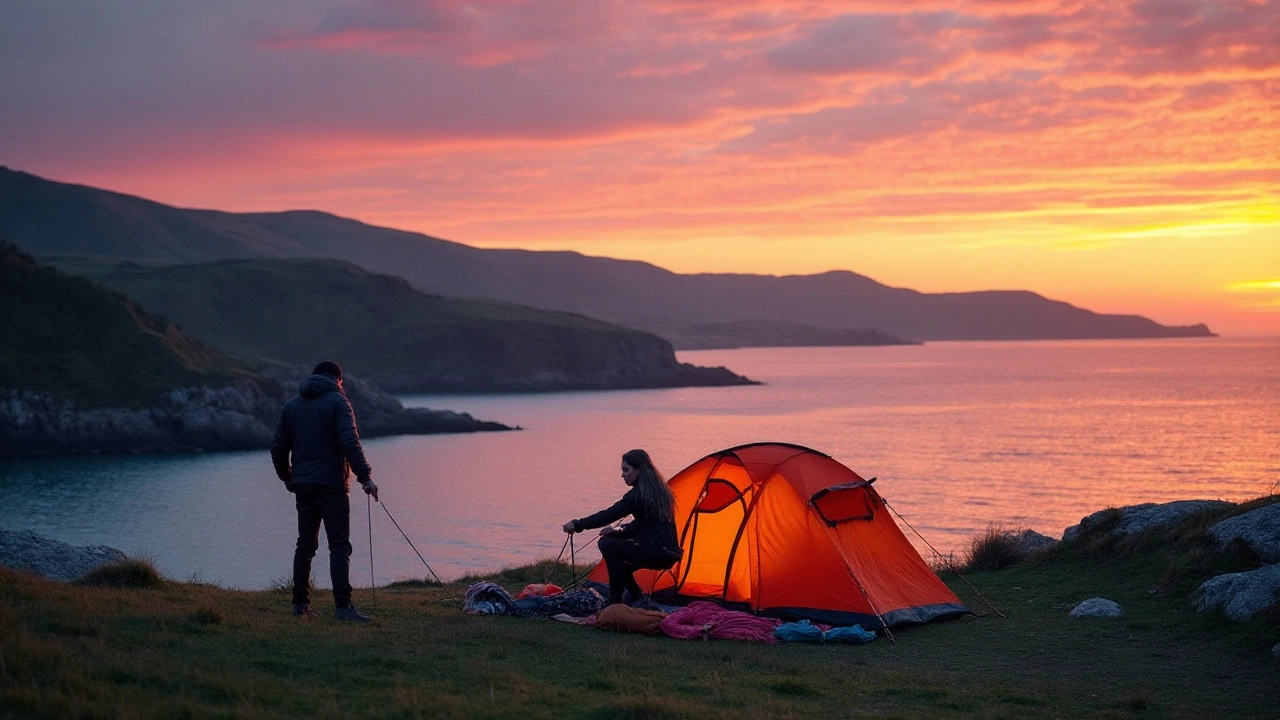Beach Camping UK: Simple Tips for a Legal and Fun Coast Stay
If you love the sound of waves and want to sleep under the stars, beach camping in the UK can feel like a dream. The catch? You need to know the rules, pick the right spot, and pack smart. Below you’ll find the basics that keep you out of trouble and make your night on the sand enjoyable.
Where Can You Actually Pitch a Tent?
Most English beaches are owned by the local council or private landowners, so you can’t just set up anywhere. Look for designated camping areas, holiday parks with beachfront pitches, or beaches that allow “wild camping” under specific conditions. In Scotland, the Right to Roam gives you more freedom, but you still have to respect local guidelines and avoid protected sites.
One easy way to find legal spots is to check the council’s website or use apps that mark approved campsites. For example, the Northumberland coast has several approved beach pitches that charge a small fee. In Wales, Pendine and Newgale beaches allow overnight stays during the off‑season if you follow the local rules.
Timing, Tides, and Safety
The tide schedule is your best friend. Setting up too close to the high tide line can leave your gear drenched or even swept away. Use a tide app or check the UK Hydrographic Office charts to know when the water will be at its lowest. Aim to arrive a couple of hours before low tide and be ready to pack up before it starts coming back in.
Safety-wise, keep an eye on the weather. Coastal winds can turn chilly fast, so bring a wind‑proof sleeping bag and a sturdy groundsheet. A LED lantern with a red light mode helps you navigate at night without disturbing wildlife or attracting unwanted attention.
Respect the environment. Pack out everything you bring in, and avoid lighting fires unless the beach specifically allows them. Use a portable stove for cooking and a small shovel to cover any waste. Leaving the spot as you found it keeps the beach clean and improves your chances of future permission.
Gear Essentials for Beach Camping
Sand is tricky to sleep on, so a good sleeping pad is a must. Foam pads are cheap and don’t absorb water, while inflatable pads give you comfort but need a dry place to inflate. A tent with a solid rainfly and sturdy stakes works best; sand stakes can be hard to hold, so consider sand anchors or burying long sticks at an angle.
Don’t forget a headlamp, a compact cooler for drinks, and a water bottle with a filter if you plan to refill from a tidal pool. A small first‑aid kit, a whistle, and a map of the area round out the basics.
Finally, be prepared for the occasional curfew. Many beaches require you to leave by midnight or sunrise. Set an alarm, pack your gear early, and plan your next destination before you start the night.
Beach camping in the UK isn’t as hard as it looks once you know the rules, pick a good spot, and bring the right gear. Follow these tips, stay respectful, and you’ll get to enjoy the sand, sea, and stars without a hitch.
Can You Sleep in a Tent on a UK Beach? Laws, Fines & Safer Options (2025)
Can you sleep in a tent on a UK beach? Here’s what the law says in 2025, where it’s allowed, fines, safety, and smart alternatives that won’t ruin your trip.
Beach Camping in the UK: Sleeping in a Tent by the Sea
Beach camping in the UK can be an exciting adventure, offering unique sunsets and the soothing sound of the waves. However, knowing the rules and regulations is crucial as not all beaches allow tents. Planning ahead and understanding your camping location is key to a successful and legal night under the stars. From hidden coves to popular sandy stretches, the UK offers a variety of experiences for those willing to explore.

